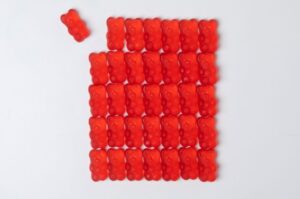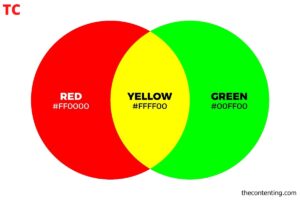
If you’re looking to gain weight, adding calorie-dense foods like peanut butter to your diet can be a great way to achieve your goals. Peanut butter is a beloved spread that is popular for its rich and creamy taste, but is it actually good for weight gain? In this article, we’ll explore the nutritional content of peanut butter, its role in weight gain, and considerations to keep in mind when incorporating it into your diet.
Introduction
Weight gain is important for individuals who are underweight or trying to build muscle mass. While there are various ways to achieve weight gain, diet is a crucial component. Many people turn to peanut butter as a source of extra calories and protein. In this article, we’ll explore whether peanut butter is good for weight gain and what to keep in mind when incorporating it into your diet.
Nutritional Content of Peanut Butter
Macronutrient Profile
Peanut butter is a calorie-dense food that is high in fat and protein. A 2-tablespoon serving of peanut butter contains approximately:
Calories: 190
Protein: 7 grams
Fat: 16 grams (of which 3 grams are saturated)
Carbohydrates: 7 grams (of which 2 grams are fiber and 3 grams are sugar)
Micronutrient Content
Peanut butter also contains micronutrients such as vitamin E, magnesium, and potassium. However, the amount of micronutrients in peanut butter is relatively low compared to other foods.
Comparison with Other Foods
Compared to other spreads like jam or honey, peanut butter is a more nutritious choice due to its higher protein and healthy fat content. However, compared to other protein sources like meat or legumes, peanut butter is not as rich in nutrients.
Role of Peanut Butter in Weight Gain
Caloric Surplus and Weight Gain
To gain weight, you need to consume more calories than you burn. Peanut butter is a calorie-dense food that can help you achieve a caloric surplus. However, it’s important to note that consuming too many calories can also lead to fat gain, so it’s essential to monitor your calorie intake.
Muscle Building and Peanut Butter
Peanut butter is a good source of protein, which is important for building and repairing muscle tissue. However, it’s important to note that consuming protein alone won’t lead to muscle growth – you also need to engage in resistance training and provide your body with enough rest and recovery.
Studies and Research on the Topic
While there isn’t much research specifically on peanut butter and weight gain, studies have shown that consuming nuts and nut butter can be beneficial for overall health and weight management. Additionally, a study published in the American Journal of Clinical Nutrition found that consuming peanut butter as part of a high-protein diet led to greater weight loss and improvements in body composition compared to a low-protein diet.
Considerations When Using Peanut Butter for Weight Gain
Peanut butter is a popular food item that is known for its high calorie and protein content. While it can be an effective tool for weight gain, there are some important considerations to keep in mind:
Portion Control
While peanut butter can be a nutritious addition to your diet, it is also high in calories and fat. It is important to practice portion control when consuming peanut butter to avoid consuming excess calories. A typical serving of peanut butter is 2 tablespoons, which contains around 200 calories and 16 grams of fat.
Added Sugars and Other Ingredients
Many commercial brands of peanut butter contain added sugars, oils, and other ingredients that can negatively impact your health. It is important to read the label and choose a brand that has minimal added sugars and ingredients.
Allergies and Sensitivities
Peanut butter is a common allergen, and those with peanut allergies should avoid it. Some people may also have sensitivities to peanuts, which can cause digestive issues. If you experience any adverse reactions after consuming peanut butter, it may be best to avoid it.
Cost and Accessibility
Peanut butter can be an affordable and accessible source of calories and protein for many people. However, the cost and accessibility of peanut butter may vary depending on your location and brand preferences.
Other Factors Affecting Weight Gain
While peanut butter can be a helpful tool for weight gain, it is important to consider other factors that can affect your ability to gain weight. Some of these factors include:
Physical Activity
Engaging in regular physical activity can help you build muscle and promote weight gain. However, if you are not consuming enough calories to support your activity level, you may not see the desired results.
Sleep and Rest
Getting adequate sleep and rest is important for muscle recovery and growth. Without enough rest, your body may not be able to build muscle and gain weight effectively.
Stress and Mental Health
Stress and mental health can also impact your ability to gain weight. Chronic stress and anxiety can increase your body’s production of cortisol, which can inhibit muscle growth and promote fat storage. Taking steps to manage stress and support your mental health can be an important part of a healthy weight gain strategy.
Conclusion
In conclusion, peanut butter can be a helpful tool for weight gain due to its high calorie and protein content. However, it is important to practice portion control, choose a brand with minimal added sugars and ingredients, and be mindful of any allergies or sensitivities. Additionally, it is important to consider other factors that can affect weight gain, such as physical activity, sleep, and mental health. By taking a holistic approach to weight gain, you can support your overall health and achieve your desired weight goals.
Read Next Blog:
Collagen Gummies: Definition, Uses, Functions, and Benefits







